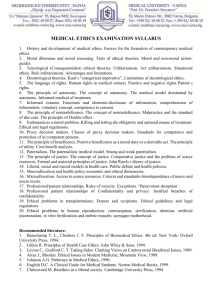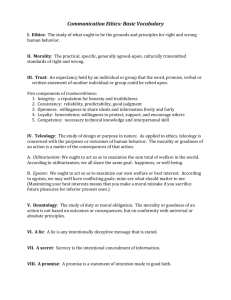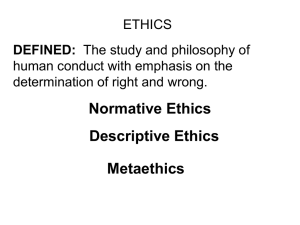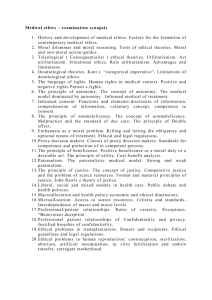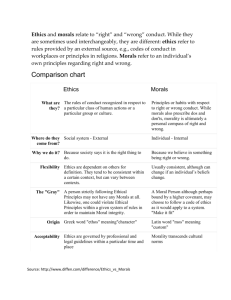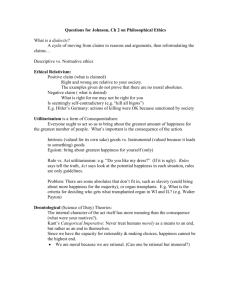Introduction to Ethics
advertisement
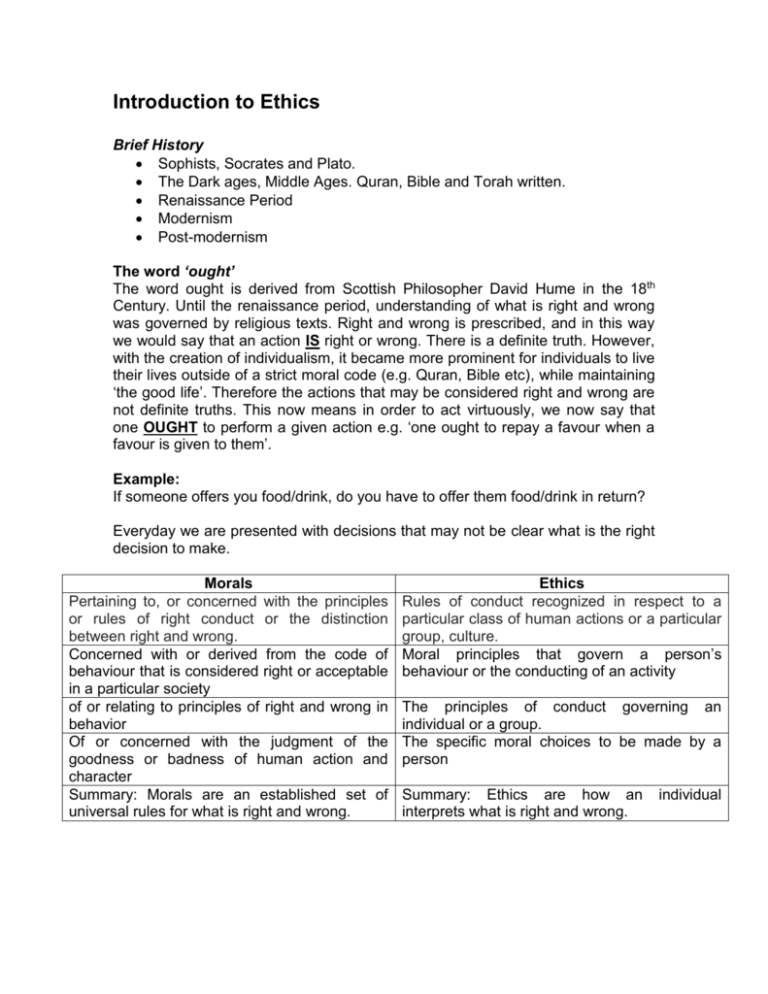
Introduction to Ethics Brief History Sophists, Socrates and Plato. The Dark ages, Middle Ages. Quran, Bible and Torah written. Renaissance Period Modernism Post-modernism The word ‘ought’ The word ought is derived from Scottish Philosopher David Hume in the 18th Century. Until the renaissance period, understanding of what is right and wrong was governed by religious texts. Right and wrong is prescribed, and in this way we would say that an action IS right or wrong. There is a definite truth. However, with the creation of individualism, it became more prominent for individuals to live their lives outside of a strict moral code (e.g. Quran, Bible etc), while maintaining ‘the good life’. Therefore the actions that may be considered right and wrong are not definite truths. This now means in order to act virtuously, we now say that one OUGHT to perform a given action e.g. ‘one ought to repay a favour when a favour is given to them’. Example: If someone offers you food/drink, do you have to offer them food/drink in return? Everyday we are presented with decisions that may not be clear what is the right decision to make. Morals Pertaining to, or concerned with the principles or rules of right conduct or the distinction between right and wrong. Concerned with or derived from the code of behaviour that is considered right or acceptable in a particular society of or relating to principles of right and wrong in behavior Of or concerned with the judgment of the goodness or badness of human action and character Summary: Morals are an established set of universal rules for what is right and wrong. Ethics Rules of conduct recognized in respect to a particular class of human actions or a particular group, culture. Moral principles that govern a person’s behaviour or the conducting of an activity The principles of conduct governing an individual or a group. The specific moral choices to be made by a person Summary: Ethics are how an interprets what is right and wrong. individual Ethical Principles There are many ethical principles, however in this course we will focus on 3: Categorical imperative Deontological ethics Utilitarianism The categorical imperative (from Immanuel Kant) states that an action is right if could become a universal law i.e. if everyone in the world did the same action and society would still be able to function well. Deontological ethics is choosing to act because it is your duty to act in this way. This means being dutiful is virtuous and is it’s own reward. Utilitarianism (from Jeremy Bentham and John Stuart Mill) states that an action is right if it maximizes net happiness. Small-scale ethical decisions at BISS 5 minutes late to class with no excuse. 1minute late to class 3 times in a week. Choosing not to participate in the school Musical/sports. Allowing students in homerooms before 8am. Using skype (or similar) during class. Making a rule about appropriate length of shorts/skirts. Running and yelling in the hallway. Playing online games at school. Playing online games with the sound up in a communal area.
